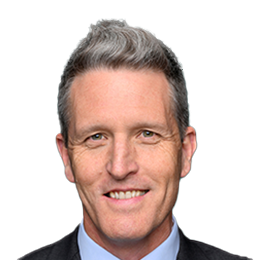
Interview with Bridget Brennan, ABC TV Breakfast
Bridget Brennan, Co-Host: Time now to speak to the Assistant Minister for Climate Change and Energy, Josh Wilson, who joins us now from Parliament House in Canberra. Good morning to you, Minister.
Josh Wilson, Assistant Minister: Good morning Bridget, I'm envious that you're in the Torres Strait. I was there last week, it's a beautiful part of Australia.
Co-Host: It certainly is paradise. So, we've both been very lucky to be here. Let's talk about some of the worst-case scenarios in this climate change assessment. Do we now just have to accept that this is what Australia is going to look like, and are we going to see two degrees of warming? Do we now just accept that 1.5 degrees of warming since preindustrial levels is not something we can achieve?
Assistant Minister: Well, no, we don't have to accept the worst-case scenario. And the new national climate risk assessment has one of the purposes of the new national climate risk assessment is to galvanize our efforts to mitigate against climate change by reducing emissions here in Australia and by being part of urgent global cooperative action. That's something that the Albanese government has done concertedly since we were elected in 2022 but it also helps us prepare for some of the impacts we're dealing with and some of the impacts that we won't be able to avoid. But I guess the starting point is that we should have a comprehensive, detailed science backed assessment, a realistic, albeit sobering assessment of the kinds of impacts we could experience, and we were committed to delivering that. We funded the Australian Climate Service with $28 million to produce this, this assessment, and it will be a really important resource for the work we need to do together in the years ahead.
Co-Host: As you said, Minister, you were just here at Ngurupai Horn Island recently. We've heard from elders this morning about the heartbreaking effects they're already seeing from climate change. What did you hear about the environmental degradation and the heritage destruction that's already happening in the Torres Strait?
Assistant Minister: Well, the Torres Strait is a part of Australia that has already experienced climate change. It's a place where climate change, for some years, has not been a future prospect. It's been a reality, and it does pose an existential threat to communities in the Torres Strait, as it poses an existential threat to communities in the Pacific. So, when I was there last week I was at Masig Island and also Saibai, very close to Papua New Guinea and in both cases you can see the risks that rising sea levels and coastal inundation present to the wellbeing of those communities and to their cultural heritage, their fisheries, their homes and so on. And that's why, in recent years, the Albanese Government's partnered with the Queensland Government through a sea walls program, and I saw some of that infrastructure at both Masig and Saibai but also just earlier this year I announced the new Torres Strait Island and Northern Peninsula Area Climate Resilience Centre, that's a new program with funding to support the work that needs to be done in those islands to keep them safe and to maintain their social, economic and environmental wellbeing as best we can.
Co-Host: And so mitigation is one thing but how do you explain a decision like that of the final approval for the North West gas shelf in WA, to Torres Strait Islanders who feel as though perhaps in the not-too-distant future they could be refugees on their own lands?
Assistant Minister: Well, the most important thing is that we make progress towards net zero by 2050. Net zero by 2050 is what the IPCC is required to keep global warming at safe levels. We are absolutely committed to doing that. Within the first few months of the Albanese government, we legislated that target, and we started to put in place all the programs that would deliver on our commitments. At the moment that we were elected, we lifted Australia's ambition. It was 26 per cent emissions reduction under the Morrison government, we shifted that to 43 per cent the moment we're elected, that's more than a 60 per cent improvement, and we're on track to deliver that. So decisions like the Environment Minister made, which was not in relation to climate emissions, but in fact in relation to conditions that protect the Murujuga rock art from airborne emissions, things that cause concern, we understand that, and I get that kind of feedback from people in my community, but I would encourage Australians to keep their eye on the big picture. The big picture is net zero by 2050, Australia's contribution to that and the work that we do cooperatively, we've struck new clean energy and clean industry agreements with many of our regional neighbours: Indonesia, Singapore, Japan and so on, because we're absolutely committed. We see climate change very clearly. We accept that it's real. We're taking action at the Commonwealth level and in partnership with states and territories and communities around Australia. Obviously, at the same time, you've got the Coalition tearing itself apart around that very issue. And it was, it was quite bizarre to see a person like Andrew Hastie, who apparently cares about Australia's national security, laying down a fresh ultimatum even just yesterday to the effect that if the Coalition is prepared to contemplate Net Zero, he's going to jump overboard. That is very hard to understand.
Co-Host: Alright. Josh Wilson, thanks for your time on the show this morning. I hope and know you'll be back here in this beautiful part of the world very soon.
Assistant Minister: Thanks, Bridget.
